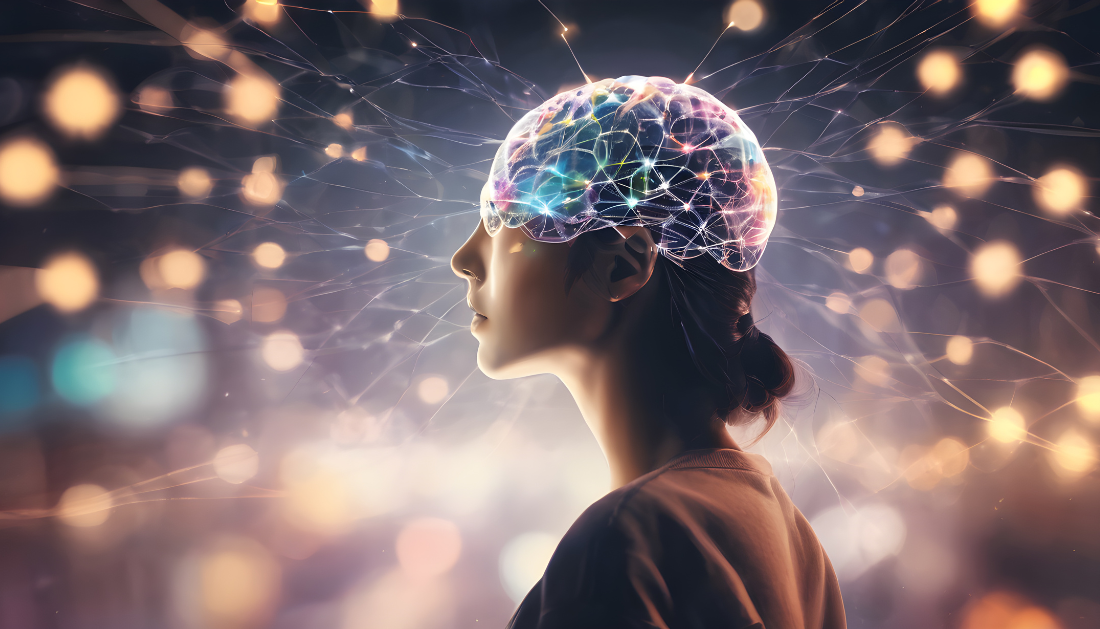

NYU Study on Hormones and Cognitive Function
A new study published in Nature Neuroscience reveals how fluctuations in the female hormones modulate dopamine signaling, a key process influencing learning and reward mechanisms in the brain. Conducted by researchers from New York University (NYU) and Virginia Commonwealth University, the findings highlight that hormonal changes across the reproductive cycle dynamically affect how the brain processes reward-based learning.
In controlled experiments with laboratory rats, scientists observed that learning efficiency improved during phases of elevated estrogen. The hormone enhanced dopamine activity in the brain’s reward center, intensifying “reward” signals and accelerating the ability to associate cues with outcomes, such as linking an audio tone to water availability. Conversely, when estrogen activity was suppressed, the dopamine-driven reward response weakened, resulting in slower learning.
Learn More about Neuroscience by joining the American Neurology Summit 2025
Hormones, Dopamine, and Cognitive Health
According to senior author Dr. Christine Constantinople from NYU’s Center for Neural Science, the results shed light on how hormonal states can influence cognitive behavior and potentially explain symptom fluctuations in neuropsychiatric disorders. The research suggests that while decision-making remains unaffected, learning performance is strongly modulated by estrogen’s regulation of dopamine pathways.
“Despite the broad influence of hormones throughout the brain, little is known about how these hormones influence cognitive behaviors and related neurological activity. There is a growing realization in the medical community that changes in estrogen levels are related to cognitive function and, specifically, psychiatric disorders.” – Christine Constantinople, professor in New York University’s Center for Neural Science and the paper’s senior author
Lead author Dr. Carla Golden notes that this discovery bridges a crucial biological gap between hormone-driven brain chemistry and cognitive function. The work may pave the way for new therapeutic insights into disorders such as depression, schizophrenia, and ADHD, which exhibit cyclical symptom changes linked to hormonal variations.
Clinical Significance for HCPs and Neuroscience Researchers
For clinicians and neuroscience professionals, this study highlights the significance of sex-specific neurobiology in both research and clinical practice. As estrogen influences dopamine-dependent learning without altering decision processes, understanding these neural fluctuations can guide more individualized approaches to cognitive and psychiatric care.
Supported by grants from the National Institutes of Health, NYU Langone Health, and the Simons Foundation, this study redefines how hormonal modulation may shape the neural basis of learning and disease progression.
These findings encourage healthcare professionals to consider hormonal status as a variable in learning, cognition, and behavioral therapy outcomes.
Source:
New York University
more recommended stories
 Microglia Neuroinflammation in Binge Drinking
Microglia Neuroinflammation in Binge DrinkingKey Takeaways (Quick Summary for HCPs).
 Precision Oncology with Personalized Cancer Drug Therapy
Precision Oncology with Personalized Cancer Drug TherapyKey Takeaways UC San Diego’s I-PREDICT.
 Iron Deficiency vs Iron Overload in Parkinson’s Disease
Iron Deficiency vs Iron Overload in Parkinson’s DiseaseKey Takeaways (Quick Summary for HCPs).
 Can Ketogenic Diets Help PCOS? Meta-Analysis Insights
Can Ketogenic Diets Help PCOS? Meta-Analysis InsightsKey Takeaways (Quick Summary) A Clinical.
 Silica Nanomatrix Boosts Dendritic Cell Cancer Therapy
Silica Nanomatrix Boosts Dendritic Cell Cancer TherapyKey Points Summary Researchers developed a.
 Vagus Nerve and Cardiac Aging: New Heart Study
Vagus Nerve and Cardiac Aging: New Heart StudyKey Takeaways for Healthcare Professionals Preserving.
 Cognitive Distraction From Conversation While Driving
Cognitive Distraction From Conversation While DrivingKey Takeaways (Quick Summary) Talking, not.
 Fat-Regulating Enzyme Offers New Target for Obesity
Fat-Regulating Enzyme Offers New Target for ObesityKey Highlights (Quick Summary) Researchers identified.
 Spatial Computing Explains How Brain Organizes Cognition
Spatial Computing Explains How Brain Organizes CognitionKey Takeaways (Quick Summary) MIT researchers.
 Gestational Diabetes Risk Identified by Blood Metabolites
Gestational Diabetes Risk Identified by Blood MetabolitesKey Takeaways (Quick Summary for Clinicians).

Leave a Comment